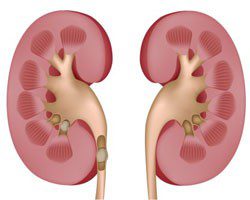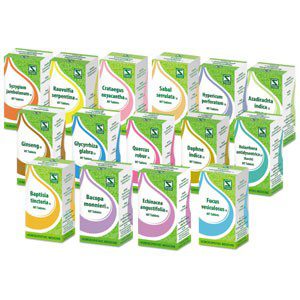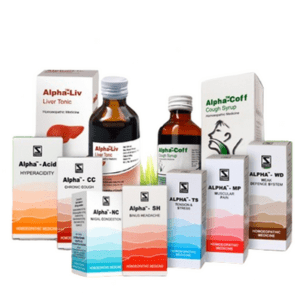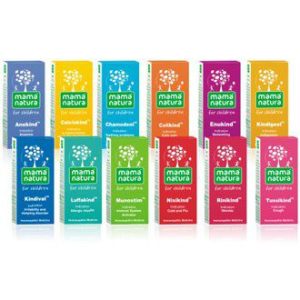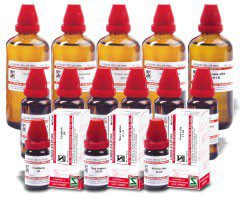Doctors Zone
Journal (JEBH)
Alpha™- Liv Drops
Alpha – Liv Drops Due to high demand from the market, for a formulation in drops for the liver, apart from the syrup already available in the market, Schwabe India developed this product. Introduction The liver plays a key role in metabolism. It has anabolic and catabolic, exocrine and endocrine functions. The liver is a blood reservoir, filter and store of different substances (e.g. glycogen, vitamins). It is the site of serum protein (e.g. albumin, prothrombin, fibrinogen) and enzyme synthesis. Metabolic processes (e.g. bilirubin, hormone, carbohydrate and lipid turnover) and the removal of toxic products are important liver functions. 1 Hepatotoxins (e.g. alcohol, tetracycline, acetaminophen, fungal toxins, and anabolic steroids) can cause specific damage to liver cells. Toxic hepatitis may be clinically silent or severe enough to lead to the rapid development of hepatic failure. Clinical features include hepatomegaly, enzyme abnormalities, fever, abdominal pain, anorexia, nausea, vomiting and weight loss. In patients with underlying cirrhosis, manifestations of portal hypertension may predominate. Aversion to fatty food, abdominal discomfort, nausea and vomiting after meals may be symptoms of 2 cholelithiasis. Jaundice results from accumulation of bilirubin. It has non-hepatic as well as hepatic causes. Hyperbilirubinaemia may be due to abnormalities in the 3 formation, transport, metabolism or excretion of bilirubin. TM Alpha -Liv Drops aids recovery and normalisation of liver functions. Severe liver disease needs specialised treatment. Indications: Slow liver functions, fatty liver, and for supportive treatment of hepatocellular jaundice and toxic liver damage.

Research News : : Anti-proliferative effect of Klimaktoplan® on human breast cancer cells
Schwabe News :: Volume 6 | Issue 7-9 | July – September 2015
Research news
Anti-proliferative effect of Klimaktoplan® on human breast cancer cells
With the health concerns of menopausal hormone replacement therapy, alternatives have been sought. Klimaktoplan® is a homoeopathic formulation consisting of four main components and has been used for relief of menopausal symptoms for a long time. The study investigated the safety of Klimaktoplan® through its effect on the proliferation of breast cancer (MCF-7) and non-malignant mammary epithelial cells (MCF-10A).
The method involved was that MCF-7 and MCF-10A cells were cultured in 312.5, 625, and 1,250 μg/ml Klimaktoplan®. 17-Beta estradiol (E2) and medroxyprogesterone 17-acetate (MPA) were used for comparison with Klimaktoplan®. E2 only (0.001, 0.01, and 0.1 μM), and the combination of E2 (0.001, 0.01, and 0.1 μM) and MPA (0.01, 0.1, and 1 μM) were tested. Control cells for Klimaktoplan® and E2 groups were treated with dimethylsulfoxide (DMSO), and DMSO + ethanol was used for the combination group. Cellular proliferation was evaluated by the formation of insoluble formazan after incubation of 4 days.
At the end of the study, results shows that Klimaktoplan® had a concentration-dependent anti-proliferative effect on breast cancer cells at 625 and 1,250 μg/ml, while not affecting proliferation of non-malignant mammary cells at any tested concentration. The effect of lactose was evaluated as lactose (the adjuvant of Klimaktoplan®) affect cell growth. E2 and lactose increased the proliferation of both malignant and non-malignant cells. The effect of E2 + MPA on the proliferation of malignant and non-malignant mammary cells was lower than estradiol only, but was higher than control.
The researchers have concluded that Klimaktoplan® has an anti-proliferative effect on breast cancer cells, but not for non-malignant mammary epithelial cells, unlike E2 and E2 + P. With further research, KP would be a good alternative or additive in women with menopausal symptoms who wish to avoid conventional E or E + P hormone therapy.
Reference: Ahn KH, Yi KW, Park HT, Shin JH, Hur JY, Kim SH, Kim T. Anti-proliferative effect of Klimaktoplan® on human breast cancer cells. Arch Gynecol Obstet. 2013 Oct;288(4):833-8.
Recent Advancements in Basic Homeopathic Research – A Report on Two Significant Publication
In a study conducted at the Experimental Farm of the State University of Santa Catarina, Brazil, researchers investigated the impact of homeopathic treatments on piglets during the nursery phase. The study aimed to determine whether homeopathic agents could reduce fighting behavior, improve growth performance, and affect hematological, metabolic, and oxidative variables. The study included 108 weaned piglets divided into four groups: a negative control group receiving only the basal diet, and three groups receiving different homeopathic treatments at varying dosages.
Journal of Evidence Based Homeopathy Volume: 1, Issue: 1, January - June 2023
Comprehensive articles

Agrohomeopathy – A Review
Short cases

Unmasking the Intricacies: A Pyogenic Abscess Case Report

Lichen Simplex: A Singular Case Study

Ranula Unveiled: A Case Report and Management Approach

Lichen Simplex: A Singular Case Study

A Puzzling Presentation: A Case Report of Jaundice
Recent provings and updated materia medica

Acidum Formicum

Mygale

Thea Chinensis
Materia medica on phytohomeopathy

Chrysarobinum

Sanguinarinum nitricum

Thiosinaminum
Mother tincture

Asparagus Officinalis

Ginkgo Biloba

Rosmarinus Officinalis
Product watch

Alpha™- Liv Drops

Good Morning™ Constipation Drops

Zauber™ Hair Drops
Research News











